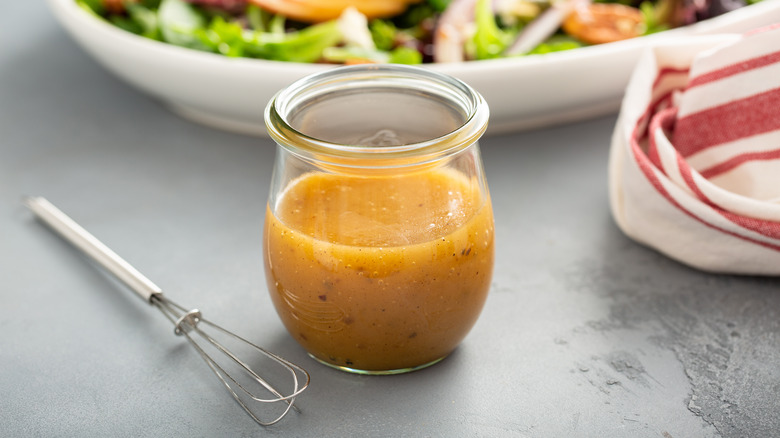The Ancient Origins Of Salad
Whether with corn, potato, or macaroni, throw a proportion of components together, mix in a bowl, and it's fit to be called salad. Although typically associated with leafy greens, Merriam-Webster defines any cold ingredients with a dressing to fit the term. From such a simple basis, it's unsurprising that nearly every regional cuisine has its own storied rendition. In Japan, traces of wakame, the constituent of seaweed salad, have been found in clay pottery dating to 3000 B.C., per Kurakon. In Northern India, raw cut-up produce has been consumed for centuries in a dish known as Kachumber, which is an integral component in a feast, states North India Cooking.
Even the etymology of the word salad traces way back to the 14th century with the Old French word salade, which means cut up herbs. Ultimately, all roads lead to Rome, to the root sal, meaning salt, via Online Etymology Dictionary. So let's dig into the ancient origins of leafy green dishes.
Leafy greens with a dressing emerged during Greek and Roman times
From inception, the mention of salad intertwines with health. According to the "Encyclopedia of Food and Culture" by Solomon H. Katz (via Food Timeline), Hippocrates advocated for eating greens before a meal to cleanse the intestines. Many disagreed; the opposition didn't fancy how salad's vinegary marinade affected wine consumption. Meanwhile, Romans, some of the first enthusiastic salad consumers, also defined the dish through their oil and brine additions. No wonder the dish's name comes from salt — the dressing defines its origins, says John Ayto of "An A-Z of Food and Drink" (via Food Timeline).
Lettuce was Rome's most ubiquitous leafy green, prepared with a dressing known as oxygarum — a mixture of garum (Ancient Rome's take of fish sauce, via Eater), oil, and spices, states Historical Italian Cooking. After Rome's collapse, salad consumption diminished across Europe until the Middle Ages, but original preparation techniques didn't disappear completely, explains HuffPost. The delicious Greek salad has stuck around and will continue to do so. It's easy to see why.

